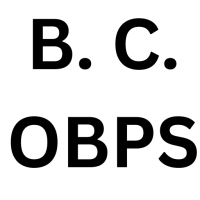Summary
Cut through the green tape
We don't push agendas. At Net Zero Compare, we cut through the hype and fear to deliver the straightforward facts you need for making informed decisions on green products and services. Whether motivated by compliance, customer demands, or a real passion for the environment, you’re welcome here. We provide reliable information—why you seek it is not our concern.
Details
- British Columbia
Deep dive
Background
In April 2024, British Columbia introduced the Output-Based Pricing System (B. C. OBPS), administered by the provincial government under the Greenhouse Gas Industrial Reporting and Control Act (GGIRCA). The B. C. OBPS replaced the CleanBC Industrial Incentive Program (CIIP) as the primary mechanism for regulating industrial greenhouse gas (GHG) emissions in British Columbia. The system aligns with Canada’s national carbon pricing framework under the Greenhouse Gas Pollution Pricing Act (GGPPA). The system is designed to incentivize large industrial emitters to reduce carbon intensity while maintaining competitiveness, supporting B.C.’s climate targets of a 40% reduction in emissions by 2030 and 80% by 2050 as set by the Climate Change Accountability Act. Prior to the OBPS, B.C. has also had a carbon tax since 2008.
Reporting Requirements
Under the B.C. OBPS, regulated facilities must submit an annual emissions report and production data through the B.C. Industrial Emissions Reporting System (BCIERS) by May 31 of each year for the previous calendar year. The emissions reports must undergo third-party verification. The emissions reporting requirements apply to a comprehensive listing of industrial activities - including production, manufacturing, processing and refining operations - along with their associated emission source types that generate reportable greenhouse gas emissions. For each specified activity, the regulation establishes prescribed quantification methodologies that must be used for emissions reporting. The system excludes certain emissions (e.g., fugitive emissions and non-useful venting in oil and gas) from compliance calculations but requires their reporting under the Greenhouse Gas Industrial Reporting and Control Act (GGIRCA). Performance standards are based on a production-weighted average emissions intensity.
Affected entities
The B.C. OBPS applies mandatorily to industrial facilities emitting 10,000 tonnes of CO₂ equivalent (tCO₂e) or more annually and producing regulated products like LNG, cement, pulp and paper, and aluminum. Smaller facilities (under 10,000 tCO₂e) may opt in voluntarily. Moreover, as detailed in the program guidance, the reporting requirements apply to specific industries including, among others, Cement Manufacturing, Sugar Manufacturing, Oil and Gas Extraction (except oil sands), Paper (except newsprint) Mills, Mechanical Pulp Mills, and Chemical Pulp Mills.
Penalties for Noncompliance
Noncompliance with the B.C. OBPS triggers significant penalties. Facilities exceeding their emissions limit must pay a compliance charge ($80 per tCO₂ 2024 rising to $170 by 2030) or surrender credits. The compliance obligation charge under British Columbia's Output-Based Pricing System (B.C. OBPS) is treated as an administrative fee rather than a taxable transaction. This classification means the charge is exempt from three specific provincial taxes: the Provincial Sales Tax (PST), Motor Fuel Tax, and Carbon Tax. The compliance charges therefore function as regulatory compliance mechanisms designed to meet environmental objectives, not as purchases of goods or services subject to standard taxation. This distinction likely reflects the policy intent behind the OBPS program, which focuses on emissions reduction rather than revenue generation through traditional tax measures. Failure to report or submit inaccurate data may also result in enforcement actions under the GGIRCA, including fines or legal prosecution. Additionally, facilities that miss deadlines or falsify data risk losing carbon tax exemptions and facing federal backstop measures.


